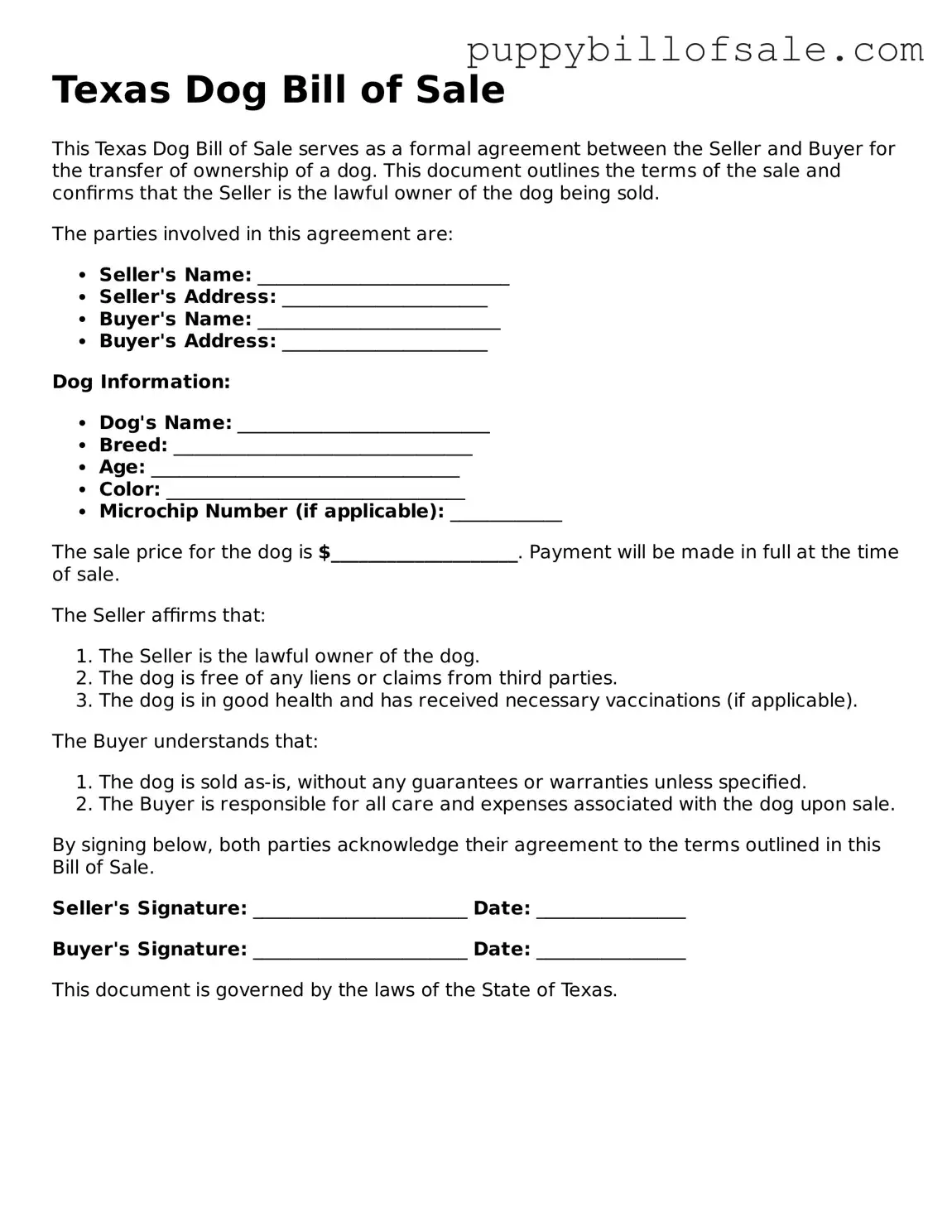Texas Dog Bill of Sale
This Texas Dog Bill of Sale serves as a formal agreement between the Seller and Buyer for the transfer of ownership of a dog. This document outlines the terms of the sale and confirms that the Seller is the lawful owner of the dog being sold.
The parties involved in this agreement are:
- Seller's Name: ___________________________
- Seller's Address: ______________________
- Buyer's Name: __________________________
- Buyer's Address: ______________________
Dog Information:
- Dog's Name: ___________________________
- Breed: ________________________________
- Age: _________________________________
- Color: ________________________________
- Microchip Number (if applicable): ____________
The sale price for the dog is $____________________. Payment will be made in full at the time of sale.
The Seller affirms that:
- The Seller is the lawful owner of the dog.
- The dog is free of any liens or claims from third parties.
- The dog is in good health and has received necessary vaccinations (if applicable).
The Buyer understands that:
- The dog is sold as-is, without any guarantees or warranties unless specified.
- The Buyer is responsible for all care and expenses associated with the dog upon sale.
By signing below, both parties acknowledge their agreement to the terms outlined in this Bill of Sale.
Seller's Signature: _______________________ Date: ________________
Buyer's Signature: _______________________ Date: ________________
This document is governed by the laws of the State of Texas.
